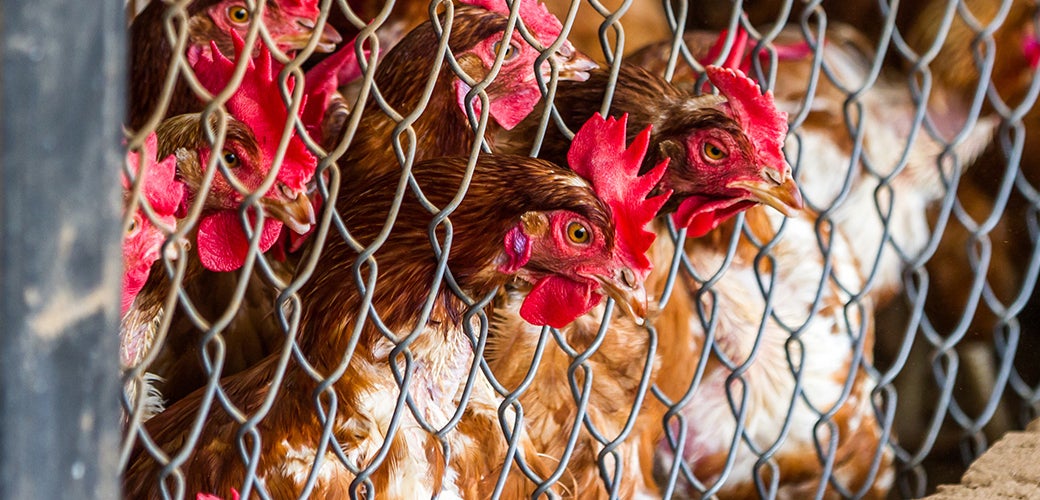
- We urgently need to increase protections for animals and workers in slaughterhouses during this major public health crisis.
- We thank over 40,000 ASPCA advocates for signing our petition to hold Tyson accountable to animals, workers and consumers.
- You can help build on this momentum—urge your U.S. representative to cosponsor the Safe Line Speeds in COVID-19 Act.
Last week, the ASPCA called on Tyson Foods Inc., one of the world’s largest meat-producing companies, to take action against shocking levels of animal suffering and the rising numbers of COVID-19 cases affecting workers at its slaughterhouses. Over the week, more than 40,000 ASPCA advocates signed a petition urging Tyson to slow down slaughter line speeds for chickens, pigs and cows; end the abusive practice of live-shackle slaughter for birds; and provide protections for workers, including paid sick leave and adequate personal protective equipment.
Animals and workers both suffer from cruel industry practices that value profits and capital over life. The same practices that the ASPCA has been working for years to change to protect farmed animals—extremely fast slaughter speeds and live-shackling of birds—create stressful and unsafe working conditions. In an industry where profit margins are slim and volume is prioritized, workers face intense pressure to kill more animals in less time and suffer injuries and exhaustion as a result.
These dangerous conditions not only lead to increased animal suffering, but they also make it easier for diseases to spread among workers. This has never been more evident than during the pandemic, with more than 35,000 slaughterhouse workers testing positive for COVID-19, turning slaughterhouses into virus hotspots. Tyson Foods has had a particularly high number of cases, with 8,500 Tyson employees testing positive—double that of any other company. At least 25 Tyson workers have died from the virus.
In addition to the ASPCA’s petition, more than 150 organizations representing animal welfare, labor, environment, food justice, farmers, consumer safety and human rights also called on Tyson to do better. Some organizations sent a letter to Tyson’s largest shareholders urging them to engage with Tyson to improve conditions. Others filed an administrative civil rights complaint with the USDA, alleging that processing policies utilized by Tyson and others disproportionately harm Black, Latino and Asian employees who make up a large share of frontline workers at the companies’ plants. Still others urged the Governor of Arkansas to close Tyson plants in the state where thousands of workers have already tested positive for the virus.
While the company has not responded to our petition or the appeals of our allies, this collaborative week of action brought critical attention to the shared plight of workers and animals as well as the risks that these unacceptable conditions pose for our society at large.
The fight isn’t over. If you’re interested in taking further action on this issue, you can contact your U.S. representative and urge them to cosponsor the Safe Line Speeds in COVID-19 Act.
Source: Read Full Article
